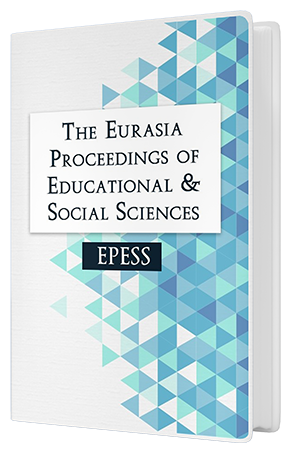PERSPECTIVES OF UNDERGRADUATE STUDENTS ABOUT POSTGRADUATE EDUCATION
Keywords:
Mathematics education, postgraduate education, teaching profession, academic careerAbstract
Nowadays, demand for postgraduate education is increasing so the necessity to determine undergraduate students’ perspectives to postgraduate education is revealed. Thus, the aim of this study is to determine the perspectives of 4th grade mathematics students studying at faculty of arts and sciences and faculty of education about postgraduate education. In the study, qualitative research design was used. 129 undergraduate students participated in the study on fall term of 2015-2016 academic year. 69 students of them were from a faculty of arts and sciences and 60 of them were from a faculty of education. A form including open-ended questions was used to gather the data in the study. Data obtained were analyzed by descriptive and content analysis techniques. At the end of the study, it was found that 50.4% of the students did not want to get a postgraduate education, 41.1% of them wanted to get a postgraduate education, and 8.5% of them did not have an idea about this subject. Also, it was found that students wanted to get a postgraduate education to have much salary, to specialize in the fields, to make academic career, to improve oneself, and since they thought that being appointed as a teacher was more difficult. In addition, the most important reasons for some students who did not have an ambition or attempt to get a postgraduate education were found as they want to be a teacher, they thought they wouldn’t have enough time to get postgraduate education, and they would have financial problems. Lastly, it was determined that students were offered to get a postgraduate education by their relatives, friends, and educators and they got information about postgraduate education mostly from their educators, friends, and internet.Downloads
Published
Issue
Section
License
Copyright (c) 2016 The Eurasia Proceedings of Educational and Social Sciences

This work is licensed under a Creative Commons Attribution-NonCommercial-ShareAlike 4.0 International License.
The articles may be used for research, teaching, and private study purposes. Any substantial or systematic reproduction, redistribution, reselling, loan, sub-licensing, systematic supply, or distribution in any form to anyone is expressly forbidden. Authors alone are responsible for the contents of their articles. The journal owns the copyright of the articles. The publisher shall not be liable for any loss, actions, claims, proceedings, demand, or costs or damages whatsoever or howsoever caused arising directly or indirectly in connection with or arising out of the use of the research material. All authors are requested to disclose any actual or potential conflict of interest including any financial, personal or other relationships with other people or organizations regarding the submitted work.




